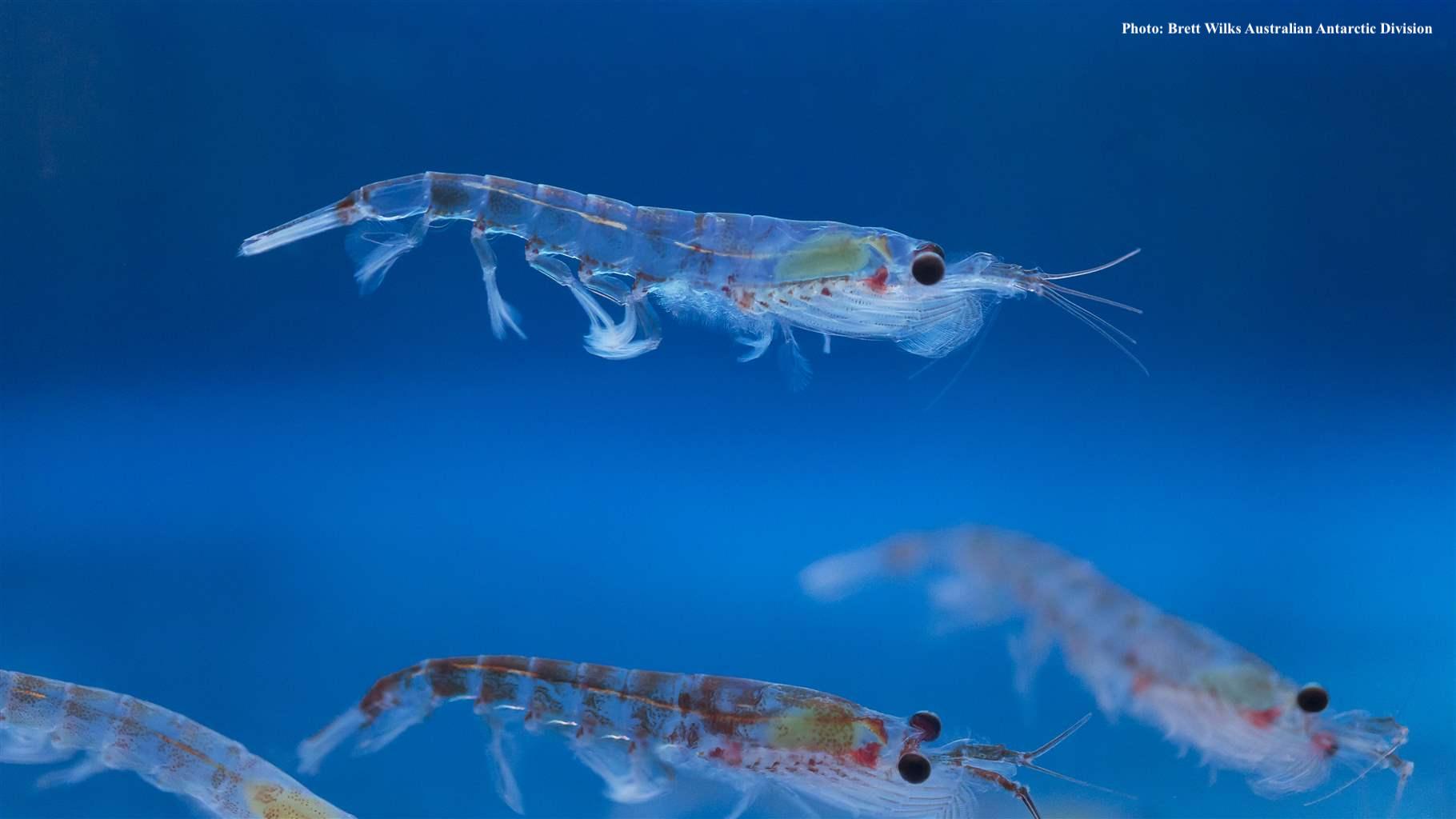A day for one of the Earth’s little superheros in the Antarctic!

August 11, 2023 is the second World Krill Day. Experts and organizations around the world are using this day to raise awareness and bring attention to krill, an amazing Antarctic marine creature in the Southern Ocean.
The Antarctic krill (Euphausia superba) is an important species in the delicately balanced ecosystem of the Antarctic. They are the primary food source for many living things in the Antarctic. They are also key player in the global carbon cycle, acting as “blue carbon,” and should be protected for their huge role in fighting climate change.
Below are some of the featured materials and tools for World Krill Day 2023.
1. Origami Krill Tutorial. A video by Claire Christian of the Antarctic and Southern Ocean Coalition giving instruction to create a krill with origami (Japanese subtitles) – https://www.youtube.com/watch?v=hNxAi2C0OZo
2. Interview (English) – “Krill Experts Discuss Need to Protect Southern Ocean’s Keystone Species: As a lead-up to World Krill Day, two scientists explain the urgency to improve fishery management” (featuring Betinna Meyer and So Kawaguchi)
3. “A Message to World Leaders on #WorldKrillDay” (A lovely video narrated by Pamela Anderson, a Canadian-American actress, model and media personality. The images are beautiful and every word counts.)
Here is what she says:
Everyone should know more about krill, Antarctica’s tiny unsung superheroes, such important creatures.
Without Krill most life in Antarctica wouldn’t survive.
These shrimp-like creatures are crucial to many Antarctic animal diets, such as seals, penguins, sea birds, fish, and the giants of the ocean, whales.
But krill are not only important for wildlife.
Feeding off microscopic plankton, they carry vast quantities of carbon from the atmosphere and excrete it far down into the ocean’s depth, storing the equivalent of carbon produced by 35 million cars each year.
Which is why we need to make sure krill stay in the ocean rather than get fished out.
In our response to the climate breakdown, nature really is our greatest ally.
Let’s respect it, not abuse it.
Luckily, there is a plan.
Three large areas of Southern Ocean are being proposed for protection.
All we need is the green light from the countries responsible for conserving Antarctica’s waters.
Let’s work together to achieve this.
Say yes to Antarctic Ocean protection, and ensure a better future for our planet and our kids.
4. A message from FoE Japan about Japan and krill
In the video, Pamela Anderson mentions three current proposals to create Marine Protected Areas (MPAs). These are the Antarctic Peninsula, Weddell Sea, and East Antarctic. The Convention for the Conservation of Antarctic Marine Living Resources (CCAMLR) has 27 member countries, including Japan, and 21 of them are sponsoring at least one of the proposals, but Japan is in the same class with Brazil, China, Namibia, Russia, and South Africa in not sponsoring even one MPA.
Japan’s fishing industry stopped fishing directly for Antarctic krill in 2012, sold its krill fleet to Korea, and now imports krill from other countries including Korea and Norway (other krill fishing countries currently include Chile, China, and Ukraine) for use as krill oil and fish meal, etc. (The krill fishing industry typically uses huge ships that suck vast amounts of krill out of the ocean.) Now the Japanese fisheries industry is seeking to resume krill fishing in the Antarctic. Some companies are also trying to increase krill consumption in Japan for krill oil, fish and animal meal, pet food, etc., claiming it is sustainably harvested. (As a related note, Japan halted its “research whaling” program in the Southern Ocean Whale Sanctuary in 2019, so whale hunting in the Antarctic has completely ended.)
Japan has one vote at CCAMLR, which meets every October and makes decisions by consensus. But Japan’s delegation speaks mostly for the Fisheries Agency and industry and does not give adequate consideration to the ecosystem or climate functions of marine life. Members of Japan’s delegation typically include representatives from fishing industry association and even a fisheries mega-corporation. In contrast to some countries, the Ministry of the Environment and environmental NGOs are not included on the Japanese delegation. This means that the voices and interests of civil society, including concerns about biodiversity, climate change, and ecosystems are not well represented by Japan at CCAMLR.
On the international stage, the government of Japan has made many commitments to protect the oceans, including the Southern Ocean, including at G7, G20, United Nations treaties such as BBNJ, and Antarctic Treaty Consultative Meetings. But when it comes to specific MPA proposals in the Southern Ocean, Japan has not yet endorsed any one of the three current proposals. It could also do much more to participate in scientific research for conservation instead of for resource exploitation.
Since Japan currently has limited fishing activity (for toothfish) in the Southern Ocean, is not engaged in krill fishing or whale hunting there, and is generally seen as a respected middle-power country, Japan has a special opportunity today to become a much stronger voice for marine protection in the Antarctic. The next critical meeting of CCAMLR is in October 2023.
We hope that Japan becomes more proactive in supporting MPA creation in the Southern Ocean.
We urge citizens to write their members of parliament to encourage Japan to protect the Southern Ocean and help save krill, one of the Earth’s tiny superheros.
To volunteer or for more detailed information please write via form.
